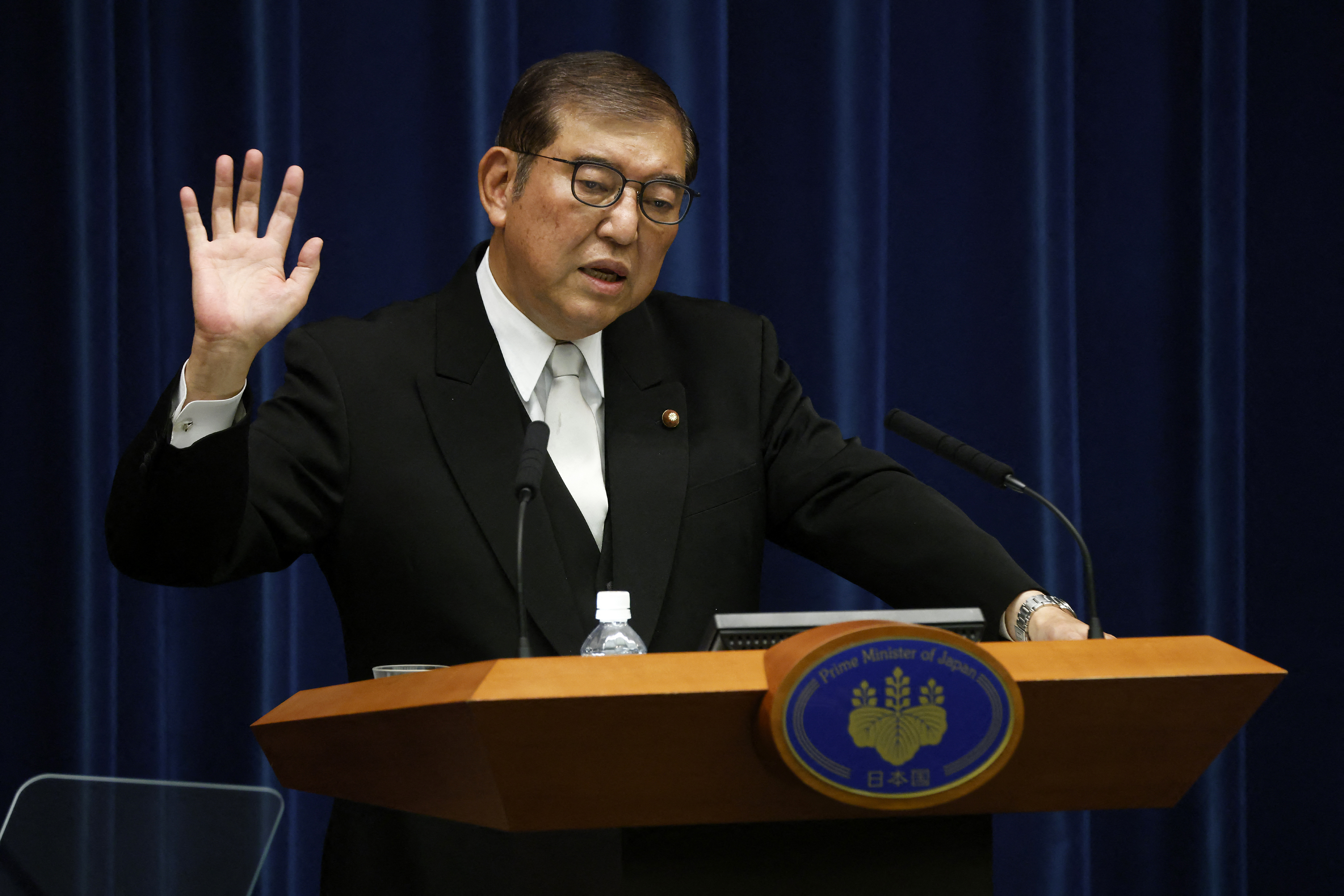
Japan’s ruling Liberal Democratic Party plans to come up with a political reform proposal by the end of the year in response to public anger over a recent slush fund scandal, Shigeru Ishiba said at a news conference on Nov 11, shortly after being reelected as Japan’s prime minister.
Ishiba stressed that the Political Funds Control Act mandates that political funds be subject to public scrutiny, and he emphasized the need for strict adherence to the law. He added that decision-making transparency and improved compliance within the party are equally essential.
“We would like to create an environment where the public can easily access information so that political funds should be under the oversight of the people in Japan,” Ishiba said.
ALSO READ: Shigeru Ishiba reelected Japan PM
He also underscored the importance of protecting privacy and confidential information when disclosure is not possible. To reinforce accountability, he proposed establishing a system in which an independent third-party organization would oversee sensitive information.
Looking to the future of his administration, Ishiba said, “We will continue to have the LDP-Komeito coalition as the foundation (of our government), and we would like to incorporate the voices of other parties as much as possible.”
He expects upcoming Diet discussions on legislation and budget proposals to be “deeper and more sophisticated”. The Diet is Japan’s national legislature.
ALSO READ: Japan's Komeito endorses land minister Saito as new leader
The Ishiba administration also sees potential in local communities, viewing regional industries as key to revitalizing Japan’s economy. Ishiba acknowledged that the Regional Revitalization 2.0 initiative requires more than local government efforts; community stakeholders must also be involved.
Kazuyuki Hamada, an international political economy scholar and former parliamentary vice-minister for foreign affairs of Japan, said Ishiba’s flagship regional revitalization policy resonates in his hometown Tottori Prefecture but lacks appeal in major cities like Tokyo and Osaka.
“To achieve regional revitalization, rural-urban integration is essential, perhaps through digital government initiatives. But without concrete plans, progress has been limited in attracting people and businesses to rural areas. Efforts must focus on uncovering local potential and business opportunities,” Hamada said.
Meanwhile, Ukeru Magosaki, director of the East Asian Community Institute, expressed skepticism about Ishiba’s influence within the LDP to initiate substantial policy shifts.
READ MORE: Support for Ishiba’s Cabinet dips post-election
Before the 2024 LDP leadership election, Ishiba advocated for his distinct positions, such as revising the Japan-US Status of Forces Agreement, reducing reliance on nuclear power, and allowing different surnames for married couples. These views, however, diverge from the LDP’s traditional policies and have not garnered wide support within the party. Consequently, Ishiba was unable to highlight these unique policies in his inaugural policy speech after taking office last month, Magosaki said.
jiangxueqing@chinadaily.com.cn


